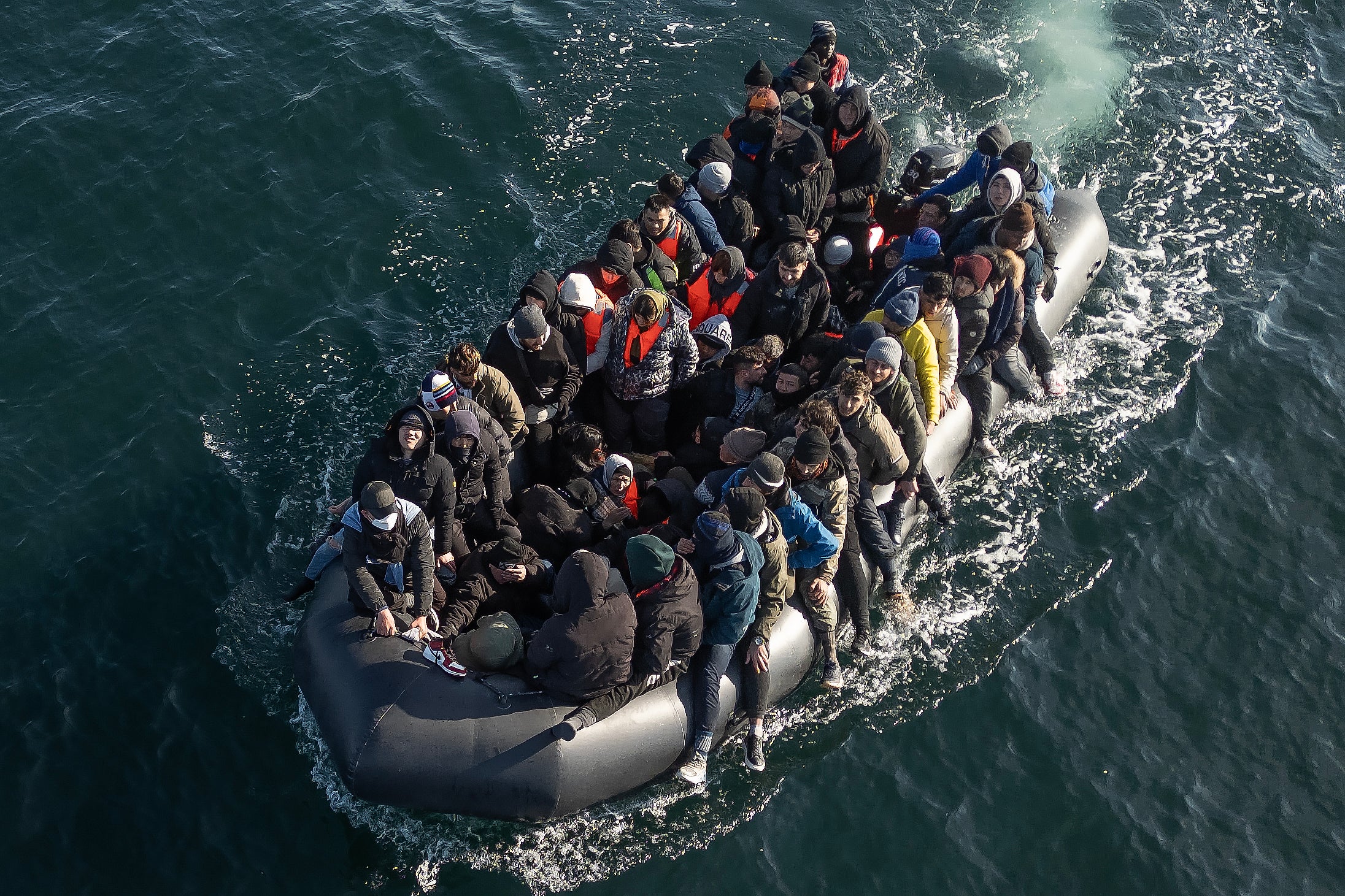The Rwanda bill is fatally flawed – never before has a law tried to alter the truth about safety
Editorial: The government hopes that the bill will be passed shortly, receive royal assent, and become law by Easter. That is an optimistic assessment of its chances – this fundamentally unconstitutional bill does not deserve to survive in anything like its present form

After suffering some fairly rough treatment in the House of Lords, the government’s Rwanda bill returned for some emergency treatment in the Commons, where all of the Lords amendments – major and minor, destructive and constructive – were rejected.
Thanks to the Conservatives’ still substantial majority there, with most of the dissent coming from those who judge the bill to be not harsh enough, the Rwanda plan is once more in the hands of their lordships. The government hopes that the bill will be passed shortly, receive royal assent, and become law by Easter. That is an optimistic assessment of its chances; in any case, this fundamentally unconstitutional bill does not deserve to survive in anything like its present form.
It remains fatally flawed because it takes the extraordinary step of attempting to dismiss a finding of fact made by the Supreme Court. As Kenneth Clarke has argued with cruel clarity, this sets an extremely dangerous precedent in allowing parliament to override a lawful ruling by the highest court in the land, and thus undermines the independence of the judiciary and the rule of law. Parliament may be sovereign, but it cannot act outside the constitution because the UK is not (yet) a totalitarian elective dictatorship.
Government ministers argue that many of the Lords amendments amount to an attempt to wreck the bill, upon which Rishi Sunak has staked so much of what is left of his reputation. They are right about that, but this is merely the Lords doing its job – and there was not a word about the Rwanda plan or anything like it in the 2019 Conservative manifesto. That means that the Lords are under no automatic obligation to bow to a democratic mandate – because the Rwanda bill, to that extent, lacks one.
In this context, as well as tactically, the government was also unwise to reject all of the many and varied Lords amendments. Some tacking and compromise might have better appeased the Lords, and tempted its members to cooperate in return. By being obdurate, the Conservatives, who hold no majority in the upper house, will now have to play a longer and more exhausting game of parliamentary ping-pong than they would have had they been more reasonable. It is not as if the parliamentary programme is stuffed full of important legislation, so there is no hurry, aside from the prime minister’s self-imposed deadlines, to rush this law.
The government should certainly have found a way to accept the Lords amendment that seeks to protect those brave former Afghan special forces personnel who were trained and fought alongside allied troops. The desperate plight of these and other Afghan people who supported the allies, exemplified by the case of the Afghan pilot that was successfully championed by The Independent, should have been acted upon by the government long ago.
Instead, those who for arbitrary reasons fell outside the scope of the various resettlement schemes are threatened with deportation to Rwanda. That is an unjust, humiliating and terrifying ordeal for any refugee, but for those who were prepared to make the ultimate sacrifice it is a particularly monstrous one. We know now that some of that resistance to allowing them to settle in the UK came from British special forces who feared that the Afghans would give evidence in any inquiries into war crimes. That makes the situation doubly dishonourable and intolerable.
There is, however, some hope. The minister for so-called illegal migration, Michael Tomlinson, said in his statement to the Commons that the government “recognises the commitment and the responsibility that come with combat veterans, whether our own or those who showed courage by serving alongside us, and we will not let them down”.
Given that, it is difficult to see why the government then whipped its backbenchers into voting against the provision that would turn that aspiration into hard statutory law. Mr Tomlinson must see that, with the best will in the world, officialdom has not thus far shown a conspicuous willingness to honour such moral obligations.
The game of ping-pong will now proceed – and the chances are that compromises will be made. As is usually the case, such concessions as are made by governments can make legislation both more effective and more widely accepted, and can take the edges off what in this case is generally an inhumane, and still unconstitutional, piece of law.
Mr Tomlinson and his colleagues seem to be halfway there in terms of doing the right thing by the Afghan veterans, and they should think again about our former Afghan comrades. Easter is, after all, a traditional time for hope and contemplation.



Join our commenting forum
Join thought-provoking conversations, follow other Independent readers and see their replies
Comments